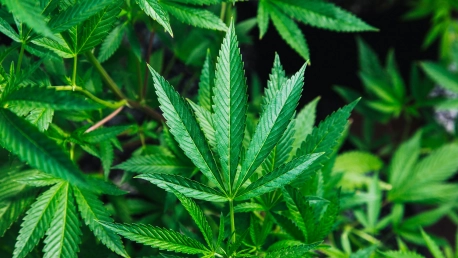The pursuit of understanding the medical benefits of cannabis continues to evolve as researchers like those at MMJ BioPharma Cultivation Inc. face significant bureaucratic resistance, particularly from federal institutions such as the DEA. The company’s recent lawsuit highlights the extensive challenges in cannabis research. Critics suggest that the DEA’s stringent policies may be inhibiting the advancement of medical science in this area. Amidst shifting legal and regulatory environments, the persistent tension between the DEA’s regulatory commitment and the necessity for scientific progress remains a complex issue.
MMJ BioPharma’s Legal Battle with the DEA
The Lawsuit Against DOJ and DEA Officials
MMJ BioPharma Cultivation Inc. finds itself embroiled in a lawsuit that points to the sluggish bureaucracy in reviewing their application to cultivate cannabis for research. The central issue of the lawsuit is their claim of unconstitutional action by the DEA in assigning an administrative law judge, a matter which tests the limits of the U.S. Constitution’s Appointments Clause. This litigation holds the potential to influence the regulatory landscape for cannabis research and could expedite MMJ BioPharma’s application process.The perseverance of MMJ BioPharma to conduct research on cannabis’s therapeutic potential exemplifies the broader struggle of entities looking to work within the regulatory framework of controlled substances for scientific development.
Protracted Licensing Process and its Implications
MMJ BioPharma has been entangled since 2018 in the DEA’s extended licensing procedures, slowing down their ability to conduct research on conditions such as multiple sclerosis and Huntington’s disease. This delay symbolizes more than just corporate frustration—it reflects a potential loss of new treatments for patients. The situation underscores a deeper issue within the medical community, which is the challenging process of navigating research regulations, significantly affecting public health and the progress of medical breakthroughs.
The Shift Towards Cannabis Research
The NFL Invests in CBD Research for Concussion Prevention
The NFL’s move to fund CBD research for concussion prevention signifies a significant shift in attitudes towards cannabis research. Such investment by a high-profile sports institution is indicative of a broader societal acceptance and interest in the therapeutic uses of cannabis and related products. It also underscores a change in the perception of cannabis historically associated with stigma.The NFL’s engagement in this research suggests potential effects on other organizations and industries to consider the scientific benefits of cannabis, contributing to its broader acceptance and integration into healthcare practices.
Increasing Demand for Cannabis Research Amidst Federal Inertia
The increasing interest in the medicinal possibilities of cannabis clashes with the stringent federal oversight from entities like the DEA. Critics and bipartisan lawmakers alike demand more accessible cannabis research, arguing that federal sluggishness impedes discoveries beneficial to public health. The push and pull between the pursuit of scientific innovation and the slow pace of federal regulation spotlights the necessity for policy reform in order to keep up with the evolving recognition of cannabis’s potential.
The Need for Judicial Intervention
MMJ BioPharma’s Plea for Rapid Review
MMJ BioPharma has approached the federal judiciary to intervene in their stalemate with the DEA, seeking to have the courts assess the constitutionality of the DEA administrative law judge appointments, and thereby facilitating an impartial review of their manufacturing license application. The resolution of this conflict is of great interest to industry stakeholders and patient advocacy groups as it may define future regulatory guidelines on drug research and federal oversight.
The Broader Repercussions of the Legal Stalemate
The legal battle between MMJ BioPharma and the DEA represents a larger context within cannabis research, shedding light on issues that affect not only businesses but also scientific discovery and patient health. How the courts respond will have considerable consequences. Thus, the lawsuit becomes a symbol of the broader effort to modernize the regulatory framework that governs cannabis science. The outcome of this litigation prompts introspection—whether regulatory bodies are facilitators or obstacles to medical innovation.









